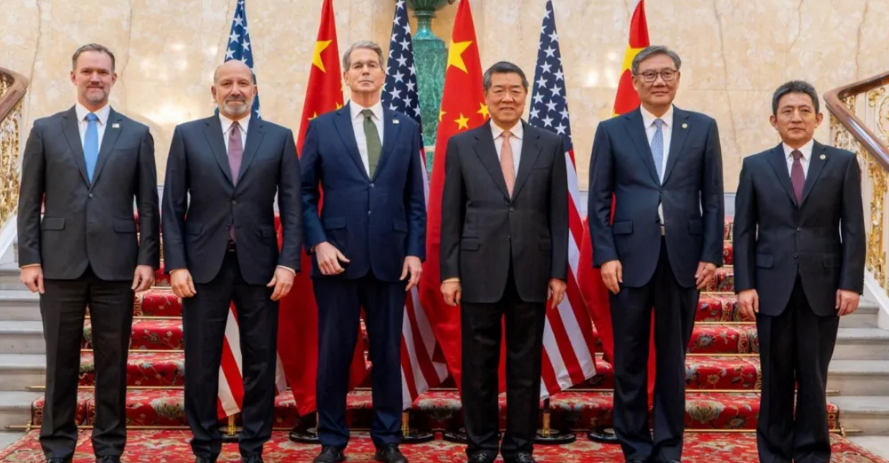The United States and China have reached a tentative agreement on a framework aimed at easing trade tensions, particularly surrounding the export of rare earth minerals and high-tech goods, officials from both countries confirmed on Tuesday.
Following two days of negotiations in London, U.S. Commerce Secretary Howard Lutnick announced that a broad framework had been agreed in principle and would be presented to President Donald Trump and Chinese President Xi Jinping for final approval. The discussions focused on de-escalating a long-running trade dispute between the world’s two largest economies.
“We have reached a framework to implement the Geneva consensus,” Lutnick said, referring to a temporary truce established in Switzerland last month. “Once the presidents approve it, we will then seek to implement it.”
China’s Vice Commerce Minister Li Chenggang echoed the sentiment, stating that both sides had come to an understanding on executing the commitments made during a recent phone call between the two leaders and at the Geneva meeting.
At the heart of the talks were rare earth minerals and magnets—materials vital for the production of everything from smartphones and electric vehicles to military hardware. The U.S. has accused China of slowing or withholding exports of these critical materials, while China has raised concerns over Washington’s tightening restrictions on Chinese access to U.S. semiconductors and artificial intelligence technologies.
The negotiations follow months of tit-for-tat tariffs and export curbs that began when the U.S. imposed sweeping duties on imports, with China responding in kind. Tariffs peaked at 145% before the temporary truce in May reduced them to 30% on Chinese goods and 10% on U.S. imports. However, both sides have since accused the other of breaching non-tariff aspects of the agreement.
The U.S. has claimed China failed to fully lift barriers on the export of rare earths, while Beijing pointed to recent U.S. measures restricting Chinese tech firms like Huawei and limiting student visas. Despite these disputes, China’s Ministry of Commerce said over the weekend that it had approved new rare earth export licences, a gesture seen as paving the way for compromise.
President Trump, speaking on Friday, said Xi had agreed to restart rare earth trade, adding optimism that the current framework could lead to a broader deal.
The U.S.-China trade relationship remains under scrutiny globally, especially as both nations seek to protect technological interests while navigating economic interdependence. The proposed framework, if finalized, could represent a key step toward long-term stabilization.


